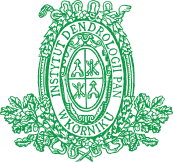Dominika Robak, Andrzej Lewandowski, Weronika Barbara Żukowska
Does genotype affect the ability to form root suckers? A case study in black poplar
Dendrobiology 2024, vol. 92: 45-52
https://doi.org/10.12657/denbio.092.003
Abstract:
It is believed that poplar species from the Aigeiros section form root suckers less often than other poplars. Nevertheless, juvenile plants growing from root suckers can be found in natural populations of black poplar. As they are clones only of certain trees, it seems that the emergence of root suckers may be under genetic control. Unfortunately, there are no studies carried out in more controlled conditions to verify this observation. Here we genotyped root suckers in the clone archive of black poplar. Samples were collected from the vicinity of 21 individuals originating from two natural populations located in the Vistula and Warta river valleys in Poland. One individual was also used in a pot experiment under control and drought-stress conditions. Most clones from the clone archive formed root suckers. Their number was positively correlated with the above-ground size of the plants. However, it did not depend on the origin of the trees. In the pot experiment, we observed root suckers only in control plants after their root system had been damaged. The outcomes of our study suggest that black poplar’s ability to form root suckers may be controlled by genotype-environment interactions. As shown by the pot experiment results, individuals may not have enough resources to invest in root suckers when environmental conditions are unfavorable. This is probably one of the reasons why only some genets in natural conditions form root suckers. Our findings are discussed in the context of their ecological significance.
Keywords: Populus, vegetative and asexual reproduction, clones, genetic variation, climate change











